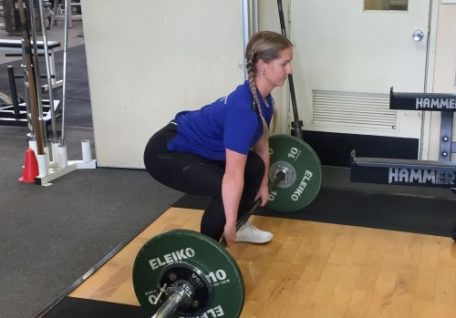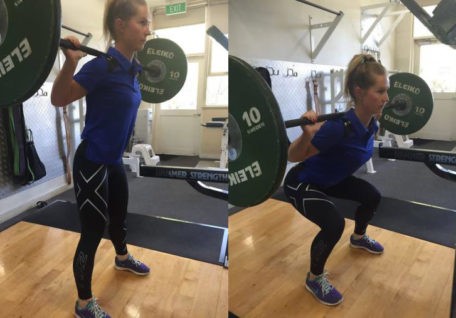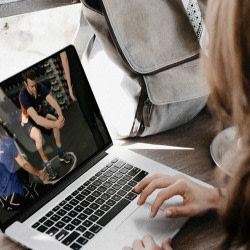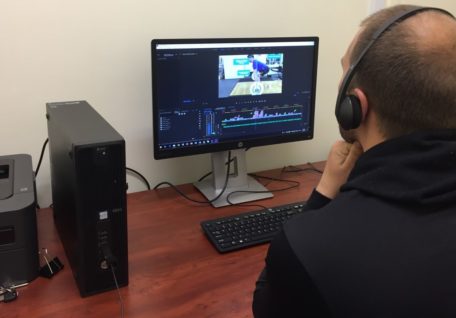Social media has had a huge impact on the fitness industry from the instantaneous interaction we can have with people all over the world to content being accessible to anyone and everyone. We live in a world where we have never been more connected and influenced by social media. We have so much information readily available and it has opened incredible opportunities for branding and self-promotion, support networks, and research. However, we have also opened the door for exploitation. People have become ‘Insta famous’ with hundreds of thousands of people following their photos and content and as a result of their aesthetics, claim to be a fitness expert. These people now have a platform to exploit the opinions of the general public and their desires around fitness. As fitness professionals, we should be aiming to use social media as a positive influence by promoting healthy and ethical fitness practices that support the interests of the people we are trying to help.
Social media has however allowed for some valuable benefits;
Accessibility of information about exercise & nutrition:
Gone are the days where you need to pay for a magazine subscription, as so much valuable content is now posted online for free. You can search free workouts, nutrition advice, different types of training methods and even research papers. This has allowed the general public to make their own informed decisions and can be a motivating factor for someone who was previously sedentary to start exercising!
You do need to be careful what you read and ensure that it is coming from a reputable source. Check that the author is qualified with at least a Cert IV in Fitness. A Bachelor or PHD in Exercise Science or Physiology is always preferred and if you’re looking at nutrition guidance, always ensure they are a qualified dietitian. Anyone can post content on the internet; it doesn’t always mean that it is correct.
New ideas:
There is so much great content out there that you might not have thought of! Ideas from other like-minded individuals in the fitness industry is a great resource to utilise if you are trying to come up with exercises to include in a circuit or bootcamp. (providing that it is safe of course)
Networking:
Instead of connecting at an event in-person, you can reach hundreds, even thousands of potential clients online. You can also utilise this for career development and to help build your own successful business by getting in contact with people that you know are qualified and learn from them. It’s a great way for professional development and to continue to learn different training methodologies and to stay up to date with current research.
Motivation factor/support groups:
Seeing others workout can encourage us to also get active! Particularly if we see our friends exercising, we’re usually more inclined to want to join in with one of their sessions! Remember for most people the more support they have, the more likely they are to participate in exercise which will result in greater adherence and assist in achieving their goals quicker.
Marketing opportunity:
Social media has become a great way to create brand awareness and get your name out there. You want to develop a reputation as someone who is trustworthy, reliable and knowledgeable. These characteristics are critical for all personal trainers, regardless of how long you have been operating, as potential clients need to form a positive opinion of you before they trust you enough to train with you and pay you for your services. As an extra advantage, make your profile as engaging as possible. Create posts that get people talking and generate discussion. Being in business online is essentially about having conversations, creating relationships and being trusted. The challenge is to keep your clients engaged and interested in you and your business otherwise it’s easy for them to become disinterested.
With all these positives, there will also be a down side to this social media craze. There is no fact checking so you need to be careful where you are sourcing your information from. If it’s too good to be true, it almost always is.
The biggest concern with the growing trend of ‘Insta-famous’ individuals is the majority of them will have huge following but no qualifications and there is no governing body regulating or questioning their advice. The assumption that these people know what they are talking about often comes from believing that if these people have a great physique themselves, they must know what they are talking about. Just because someone has a six-pack or has competed in a body building show, it doesn’t automatically mean they are a good coach. The information they give out could be simply what works for them but getting results with your own body isn’t the same as getting results with theirs. We’re all different and respond to different training and nutrition methods. This ‘cookie cutter’ approach is potentially damaging for the fitness industry and for the general public who don’t know otherwise. Not only could it damage your health, but it generally comes at a hefty cost too.
Unsafe exercises – People try to re-create the wheel and come up with exercises for the sake of being different and to stand out from the crowd, 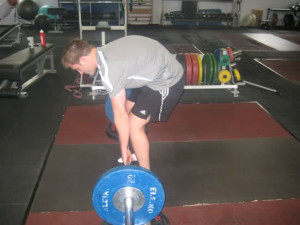
As technology becomes more and more popular, people become reliant on checking their phones for the latest posts. Fitness influencers physiques which are plastered all over social media all year round has resulted in an unrealistic expectation of what the ‘ideal body’ now is. Young people, particularly adolescents are so consumed with these photos of fitness physiques, which would evidently have a huge impact on self-worth and body image. Young men think they have to have chiseled abs, a big chest and extremely tapered waistlines to look ‘perfect’ and be healthy. While young women may interpret underweight/extremely thin bodies to now be healthy when in fact this is a detriment to their long-term health. It’s easy to forget that these people have sponsorship’s and are paid to be in good shape. They have the time to workout twice a day and promote products that they often don’t even use (such as detoxes, extreme diets, unnecessary supplements). Let’s also not forget that technology is now so advanced that anyone can use Photoshop to digitally enhance their own photos to make them their body appear more muscular or waists appear slimmer.
It’s easy to get disheartened with the portrayal of the fitness industry on social media, but shying away from the most popular platforms for connectivity and avoiding social media altogether will not fix the issues. We can as fitness professionals, be the pillars for positive change and use social media in a way that we support the interest of the people we are trying help.
Take Home Message
- Find reputable, qualified sources
- Don’t get caught up in trying to look exactly the same as someone else
- Brainstorm new ideas from other people
- Market yourself – find your niche/target audience
- Be unique
- Start networking!
- Make a positive impact!
Has social media impacted the fitness industry?
Social media has had a huge impact on the fitness industry from the instantaneous interaction we can have with people all over the world to content being accessible to anyone and everyone.
How has social media benefited the fitness industry?
Accessibility of information
New ideas
Networking
Motivation
Marketing opportunities
What are the negative impacts of social media on the fitness industry?
Misinformation and no fact checking
No qualifications required
Unsafe exercises
Unrealistic/unattainable standards





